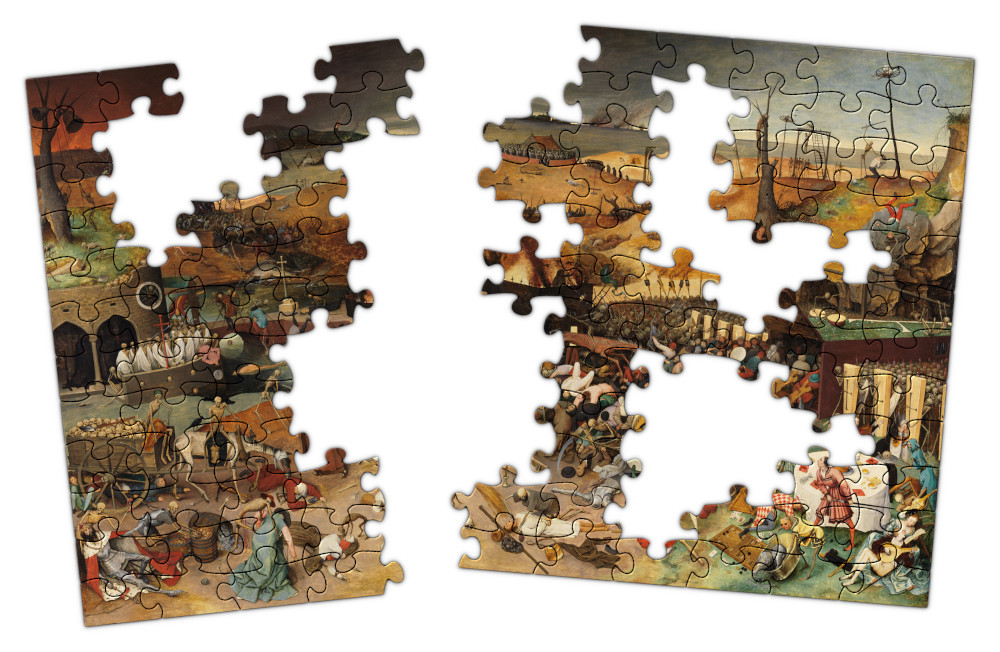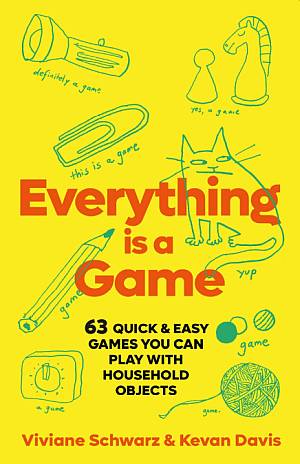Jigwar is a competitive jigsaw-solving game for two players (or teams), played across a single jigsaw puzzle. Players start from different corners and race to attach the most pieces to their side.

Setup
Take any jigsaw: a 100-piece one is good for a quick game.
Each player takes a corner piece and places it in front of them. The remaining pieces are scattered in the middle of the table within reach of both players.
Gameplay
Players race to expand their corner of the jigsaw using pieces from the middle. Each player may only hold a single piece (or connected chunk of pieces) in their hands at any time. As you expand your side of the jigsaw, those pieces which are connected indirectly to your starting corner are protected, and can't be taken by your opponent.
You can move unclaimed pieces around, or make floating groups of connected pieces which don't yet join onto your side, but those pieces aren't protected — your opponent is free to take them at any time.
Winning
The ostensible aim of the game is to have the most pieces attached to your own corner when all of the pieces have been placed.
In practice, the game can be called as soon as a player has blocked out more than half of the jigsaw. For example, the image at the top of this page shows a 120-piece jigsaw, where a player would need to get more than 60 pieces on their side to win. The player on the right only has 50 pieces connected — but the 14 missing from the interior gaps on their side could never be claimed by their opponent, who could not build a path to them. The player on the right would be able to get to 64, and win, while their opponent could never get above 56.
Any player may call a pause to the game to count or calculate their own side of the puzzle, at any time, if they think that they might have passed the halfway mark. (Jigsaw pieces in players' hands are assumed to be available for completion, when counting in this way — in the example above, if the left-hand player was holding a chunk of the missing 14 pieces, it wouldn't change the outcome.) There's no penalty for calling such a count and finding that nobody has won yet, the game simply resumes.
